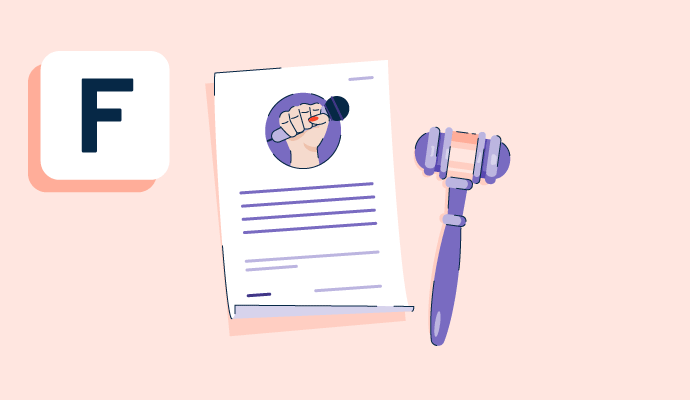What is the Freedom of Information Act (FOIA)?
The Freedom of Information Act (FOIA) is a United States law put into place in 1966 granting individuals the right to access information held by government agencies or public authorities. Subject to certain exemptions, it was designed to promote transparency and accountability by allowing the public to request and receive information and federal agency records about the activities of their government.
Exemptions for the Freedom of Information Act consist of national security, personal privacy, trade secrets, commercially sensitive information, attorney-client privilege, and geological and geophysical data.
Enterprise content management (ECM) systems are document management tools that help businesses store and oversee a wide range of content, including files and media. Organizations that receive FOIA requests have found success using these kinds of ECM platforms.
The history of the Freedom of Information Act
The Freedom of Information Act was first signed into law by President Lyndon B. Johnson on July 4, 1966. Significant modifications were made to the law in 1974 under the Ford Administration because of increased public scrutiny of government operations following the Watergate scandal.
In 1986, major changes came about addressing statutes of limitations on FOIA requests, interest on attorney fees, and availability of attorney fees. These changes were made under the Electronic Freedom of Information Act Amendments, which removed the requirement that requesters show a public need for requested documents. Instead, the burden of proof was placed on the government to assert a statutory exemption.
In 1996, FOIA was amended to deal with discretionary disclosures. They did this because people thought the scope of the disclosures could hurt business information, personal privacy, and fees charged to requesters.
Benefits of the Freedom of Information Act
The FOIA encourages responsibility in government, leading to a healthier relationship between the public and elected officials. Other benefits comprise:
- Informed decision-making. The FOIA empowers journalists, researchers, organizations, and all private citizens to obtain the necessary information and documentation to make informed decisions. Having all the facts, insights, and data to understand government policies and actions better also enables informed public discourse.
- Government accountability. The Freedom of Information Act holds government agencies accountable and promotes effective oversight. Public and advocacy groups have access to government information, making it possible to review and scrutinize government activity and ensure ethical standards are upheld.
- Support for investigative journalism. The FOIA plays a vital role in investigative journalism and public interest reporting. Journalists use these requests to obtain records, documents, and data about government activities, issues of public concern, and scandals. Journalists rely on the FOIA to uncover and report on issues that matter most.
- Enhanced transparency. The FOIA promotes transparency by providing the public with access to government information. Individuals can also monitor the actions of government agencies, holding them accountable and fostering trust between the government and US citizens.
- Easier access for academics. Researchers and scholars also have access to government data, studies, and reports through the FOIA. This fosters evidence-based research and enriches academic discourse.
- Empowered citizen engagement. The FOIA empowers citizens to view government information, voice their concerns, engage in public debates, and participate in democratic processes.
Making a Freedom of Information Act request
Individuals have to follow a specific process to obtain information through the FOIA.
Usually, a written request for specific information is submitted to the relevant government agency. When requesting, it’s important to provide accurate information to help the agency find the necessary records and files.
The agency must respond within a designated time frame by providing the desired information or citing the reasons for denial.
Clear and detailed submissions improve the chances of obtaining records. Some details needed for a request are below.
- Identification: The requester’s full name, contact information (address, phone number, and email).
- Description of records: A thorough description of the desired documents.
- Format preference: Indicating the chosen format for receiving records, usually a physical copy, electronic files, or email attachments.
- Request for fee waiver or reduction: Explanation for requesting a waiver or a reduction in potential fees.
- Personal fee limit: The maximum fees the requester is willing to pay. It’s also possible to request the agency send confirmation of estimated fees if they’re expected to exceed the stated limit.
- Contact preferences: The preferred method of communication (email, phone, or mail) for updates related to the request. This can also include if the requester would like to be notified of any delays in the request.
- Signature: Signature and date of FOIA request.
Tip: Submit a Freedom of Information Act request online here.
Examples of FOIA cases
Landmark FOIA cases have played a crucial role in shaping its interpretation and implementation. Four noteworthy examples of significant cases and their impact are discussed here.
- The United States v. Nixon (1974): This case involved President Richard Nixon and his attempt to withhold incriminating White House tapes during the Watergate scandal. The Supreme Court ruled that executive privilege does not extend to cover evidence of criminal wrongdoing. Their decision reaffirmed the principle that the FOIA can be used to access information even from the highest levels of government.
- The Environmental Protection Agency v. Mink: In 1973, Representative Patsy Mink requested information from the Environmental Protection Agency (EPA) regarding the production of certain chemicals. The EPA denied her request, citing concerns about industry trade secrets. Mink filed a lawsuit, and the case eventually reached the Supreme Court. In a unanimous decision, the Court ruled that disclosure requirements under the FOIA were quite broad, with few exceptions.
- The Department of the Interior v. Klamath Water Users Protective Association: A dispute between a water association and the Department of the Interior over information related to the Endangered Species Act was at the heart of this 2001 case. The Supreme Court ruled that just because information may marginally increase the public's understanding doesn’t mean it’s protected as part of the deliberative process. This decision helped clarify the circumstances under which certain agency documents can be withheld from release under the FOIA.
- The New York Times Co. v. the United States (1971): Commonly known as the Pentagon Papers case, it focused on the publication of classified documents related to the Vietnam War. The Supreme Court ruled that the government's attempt to restrain the publication violated the First Amendment, emphasizing the importance of a free press and the public's right to access information. The case underscored the role of the FOIA in promoting government transparency and accountability.
The global influence of the Freedom of Information Act
The FOIA's influence spread globally, leading to the adoption of similar laws in numerous countries worldwide. The laws promote transparency, accountability, and public access to government information. Read about these examples of countries that have implemented similar legislation.
- United Kingdom: The Freedom of Information Act 2000 applies to public authorities in the UK and grants individuals the right to access information held by these entities.
- Canada: The Access to Information Act of 1993 allows Canadian citizens and residents to request access to records held by federal government institutions.
- Australia: The Freedom of Information Act 1982 lets individuals access documents held by Australian government agencies.
- South Africa: The Promotion of Access to Information Act 2000 (PAIA) grants individuals the right to information held by both public and private bodies
- India: The Right to Information Act 2005 establishes a framework for citizens to access information held by public authorities at the central, state, and local levels.
- New Zealand: The Official Information Act 1982 enables individuals to request information from government departments, agencies, and state-owned enterprises.
- Sweden: The Principle of Public Access to Official Documents, known as Offentlighetsprincipen, guarantees citizens the right to access official documents held by Swedish public authorities.
- Mexico: The Federal Law on Transparency and Access to Public Government Information and various state-level transparency laws, passed in 2016, provide mechanisms for acquiring government information.
- Brazil: The Access to Information Law (Lei de Acesso à Informação) of 2011 establishes procedures for citizens to request information.
- Japan: The Act on Access to Information Held by Administrative Organs of 2001 enables individuals to request government records.
Learn more about document management and how to securely store files.

Mara Calvello
Mara Calvello is a Content and Communications Manager at G2. She received her Bachelor of Arts degree from Elmhurst College (now Elmhurst University). Mara writes customer marketing content, while also focusing on social media and communications for G2. She previously wrote content to support our G2 Tea newsletter, as well as categories on artificial intelligence, natural language understanding (NLU), AI code generation, synthetic data, and more. In her spare time, she's out exploring with her rescue dog Zeke or enjoying a good book.

